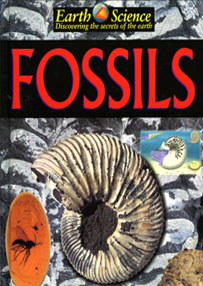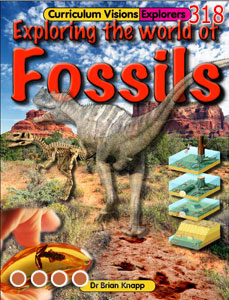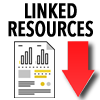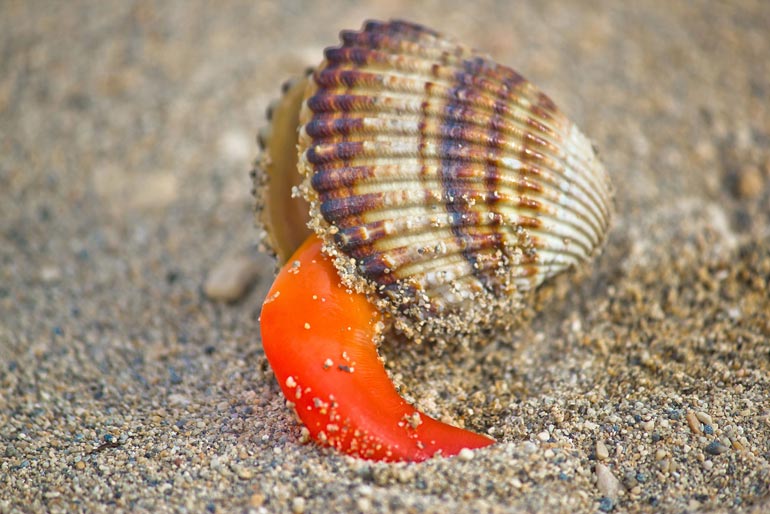Mussels, cockles, oysters, scallops and clams are all common names for the shelled animals you find attached to rocks or in the sand just below the surface. They all have two protective shells. Each shell, or valve, fits into the other at the hinge end. One end has sockets and the corresponding end of the other valve has little knobs that fit into the sockets. The two valves are attached by a rubbery joining material which is naturally springy.
Bivalves have very strong muscles. One muscle is attached to each shell. The rubbery hinge naturally tends to make the shells spring apart, or gape, and the muscles are contracted to pull the shells together. That is why clams that are open are dead, and also why when people cook live clams, they watch for the valves to open because then they know they will have cooked the animal inside and that it is dead.
Bivalves need to open their valves if they move about, and also to allow their two feeding tubes (siphons) to reach out into the water. Bivalves feed by sucking in water and filtering food from it.
Some bivalves have a long foot that can extend out of the valves and be used to help the animal to 'walk' along the sea bed. Cockles are like this. Others stay attached to rocks. Mussels are like this. Some bivalves, such as the scallops, can swim by opening and closing their valves very quickly. This forces the water out and propels them in a series of jerky movements. Some can burrow. Razor shells / razor clams are like this.
Bivalves have been food for humans since ancient times. The pearls found in oysters have also been prized as gems.





